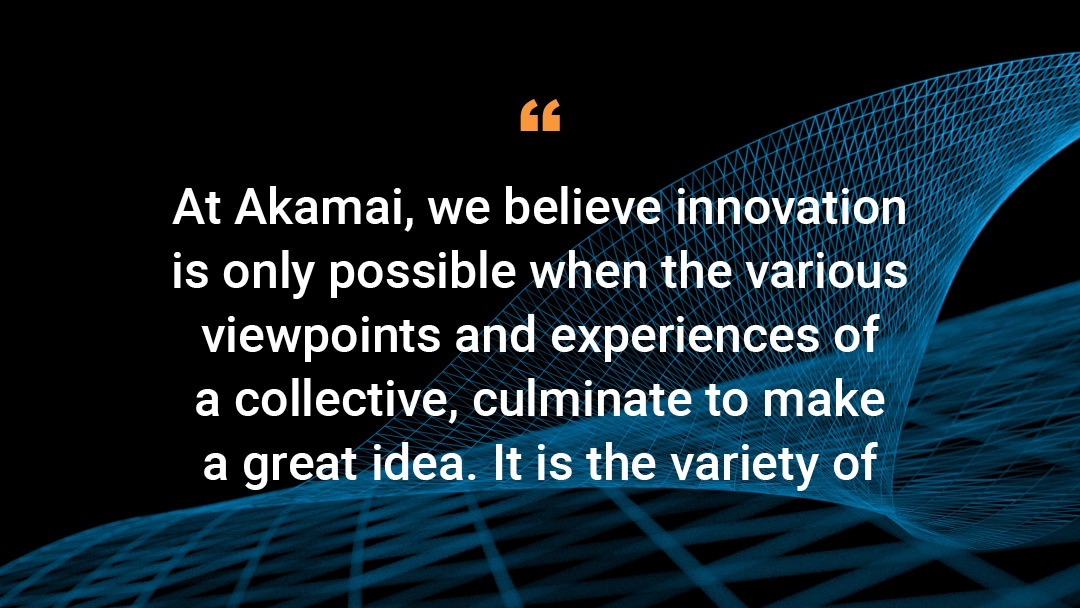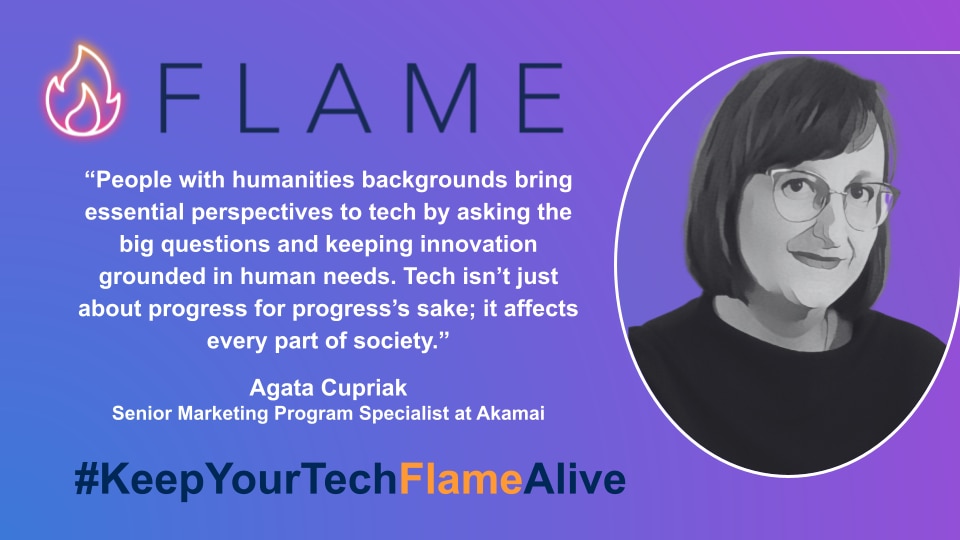Diversity of Thought in Tech

At Akamai, we believe innovation is only possible when the various viewpoints and experiences of a collective, culminate to make a great idea. It is the variety of these ideas which is important.
Why does diversity of thought matter?
When a team is made up of several people with similar perspectives, there will always be a natural limit to how broad their thought processes can be. However, when a team is made up of people with different backgrounds, they will naturally be able to draw on a much broader realm of experience.
Therefore, an organization with diversity of thought guards against "groupthink," in which there is no need for creative discussion because everyone in the group already agrees.
Diversity of thought is seen to be much more successful because "that very friction or rub, made up of the disagreement of different team members, is what makes diverse teams higher performing, collectively, compared to homogeneous ones."
At Akamai, we not only consider diversity of thought throughout our hiring process, but we nurture it day-to-day within our teams. This approach ensures that we are gaining from the wealth of experience all our members of staff bring.
Many of our teams are diverse in terms of education and background, with many of our members of staff coming from a non-traditional tech background. While this diversity may bring many differences of opinion and make for a lengthier discussion process, it ultimately makes for more cohesive innovation that avoids the pitfalls of groupthink.
How do we enable all our employees to achieve their potential?
To encourage all our team members to be authentically themselves, at Akamai, we believe in taking a tailored approach to teamwork. This is to account for diversity of personality - a natural result of diversity of thought.
As Ross Feinberg, Akamai's VP of Strategy and Operations, says, "some of your most creative or advanced thinkers may not be the ones who speak up in a room." So, in those situations, it's essential to be aware of the individuality of all your team members.
While some may take over the conversation, this can be balanced by actively encouraging and asking the opinion of those who prefer to sit back. "They may have a brilliant idea that they're not speaking up on because their personality may mean that they are less comfortable in that setting." To support this, Ross suggests implementing one-on-one meetings as well as group meetings, so that managers gain the perspective of all their team members.
By valuing the unique input of our employees, we can benefit from all their contributions. Every individual in a different job role brings their own perspective to the table as they understand certain things in greater depth.
To encourage diversity of thought, it is important to acknowledge each person's expertise.
So, while one person might understand how to implement a process best internally, another person might have a greater understanding of the impact of that process on the user experience. Both their opinions are valid. However, imagine how much better the end product can be if we consider both their perspectives instead of just one.
On this note, it is also important to encourage input into discussions from team members who wouldn't automatically be included in those conversations. At Akamai, we don't believe that just because someone isn't an expert in an area doesn't mean they can't have a great idea. This reduces the risk of a top-down mentality in which the person most senior carries the most weight.
Giving everyone a chance to speak up means that you can take the best of what they cumulatively innovate, ensuring that no stone is left unturned.
What steps do we take to encourage everyone's individuality?
We try not to take ourselves too seriously. As such, we like to make sure we're having fun. We believe that when everyone is free to be themselves within the workplace, there will naturally be better communication within teams.
So, we encourage team-building exercises and social events. Ross hosts an annual barbeque and believes in promoting events like these because they help to "wash away the idea that you have to be someone different in the office, which you may not be comfortable being." He says, "we have some of the brightest people working with us, who may not fit in a suit and tie environment."
It's crucial that our employees know that they do not have to pretend to be someone else to have a valid contribution. So, we believe in encouraging our employees to actively pursue their passions, and not just those that relate directly to their job role.
Akamai is made up of rounded individuals whose interests go beyond the field of Tech. Their backgrounds and experiences are many and varied. As a result, we feel fortunate to have so many brilliant minds within our team, working together to perfect the art of connection.
Connection, after all, is not just vital for technology, but it is vital for humanity, and that is where our passion really lies. It is in acknowledging our differences that we believe we can be empowered to work together. After all, why have one mind on the job, when we could have many?





